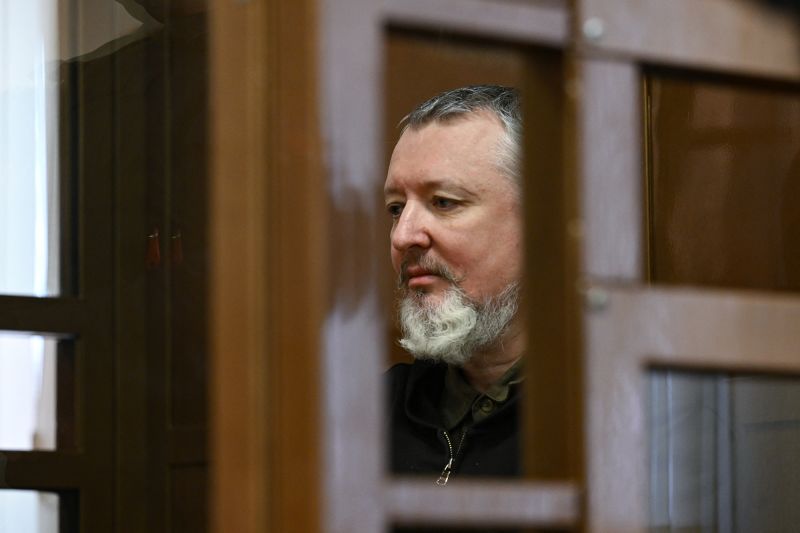
Prominent Russian Pro-War Blogger Convicted on Extremism Charges

A prominent Russian pro-war blogger, Igor Girkin, also known as Strelkov, has been found guilty on extremism charges and sentenced to four years in prison by a Moscow court. Girkin, a former officer of Russia's Federal Security Service (FSB) and an ex-military commander, played a crucial role in Russia's annexation of Crimea and the early stages of invading Donbas. He was also closely linked to the downing of Malaysia Airlines Flight MH17 in July 2014. This article explores the conviction of Igor Girkin and the events leading up to it, shedding light on the influence and impact of his actions.
The Conviction of Igor Girkin
Igor Girkin, a prominent Russian pro-war blogger also known by his pseudonym Strelkov, has been convicted of inciting extremism and sentenced to four years in prison by the Moscow City Court. The conviction comes after Girkin criticized President Vladimir Putin's handling of the war on Ukraine and became increasingly critical of the military's operations in the region. This significant development has sparked widespread discussions about the implications of Girkin's conviction and its impact on the political landscape in Russia.
Girkin was an influential blogger and critic of Putin.
Girkin, with over half a million followers on Telegram, played a crucial role in Russia's annexation of Crimea and the early stages of invading Donbas. His involvement in these events, along with his outspoken criticism of Putin, has made him a controversial and influential figure in Russian politics and military affairs.
The court's decision to bar Girkin from accessing the internet has effectively limited his ability to publicly voice his opinions and criticisms of Putin's leadership. This move has raised concerns about freedom of speech and the suppression of dissenting voices within Russia. The impact of Girkin's absence from the online sphere is expected to be felt across social media platforms and online communities where he previously had a significant presence.
The Influence of Igor Girkin
Igor Girkin's prominence as a pro-war blogger and his role in Russia's military activities have garnered attention both domestically and internationally. As a former officer of Russia's Federal Security Service (FSB) and an ex-military commander, Girkin's influence extended beyond his online presence to shaping public discourse and opinions on geopolitical matters.
Girkin's close association with the downing of Malaysia Airlines Flight MH17 in July 2014 has raised questions about his involvement in significant international incidents. The impact of his actions and the resulting conviction have highlighted the intersection of political, military, and legal implications, underscoring the complexity of his influence and the broader implications of his case.
Furthermore, Girkin's outspoken criticism of Putin and his advocacy for a harsher approach in military operations in Ukraine have contributed to the ongoing debate surrounding Russia's foreign policy and military strategies. His arrest and subsequent conviction have drawn attention to dissenting voices within Russia and the challenges they face in expressing their views in a highly controlled media environment.
The Political Landscape in Russia
The arrest and conviction of Igor Girkin have underscored the complexities of the political landscape in Russia and the challenges faced by individuals who openly criticize the government and its policies. Girkin's case has reignited discussions about the boundaries of free speech, political dissent, and the legal repercussions for those who challenge the status quo.
Girkin's affiliation with ultra-nationalist political groups and his advocacy for political changes have raised concerns about the state of internal politics in Russia. His arrest coincided with a period of heightened political tension, particularly in the aftermath of the failed rebellion by Wagner mercenaries and the perceived fragility of President Putin's hold on power.
The sentencing of Girkin and the public demonstrations in his support reflect the polarized opinions within Russian society and the divergent views on the direction of the country's political landscape. The implications of Girkin's case extend beyond his individual conviction, shedding light on the broader socio-political dynamics and the evolving discourse on Russia's domestic and foreign policies.







